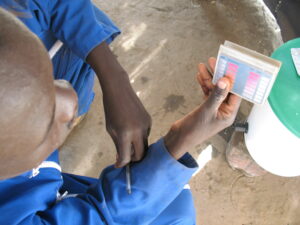
[tta_listen_btn listen_text="Click to listen to this story" pause_text="Pause" resume_text="Resume" replay_text="Replay" start_text="Start" stop_text="Stop"]
The Safe Water Optimization Tool (SWOT), an innovative technology used to help humanitarian responders deliver safe water in crisis zones, developed by two professors in York University’s Lassonde School of Engineering and Dahdaleh Institute for Global Health Research, was recently highlighted as a success story in two international publications.

Built by Syed Imran Ali, an adjunct professor at Lassonde and research Fellow at the Dahdaleh Institute, in collaboration with Lassonde Associate Professor Usman Khan, the web-based SWOT platform generates site-specific and evidence-based water chlorination targets to ensure water remains safe to drink all the way to the point of consumption. It uses machine learning and process-based numerical modelling to generate life-preserving insight from the water quality monitoring data that is already routinely collected in refugee camps.
One of the SWOT's funders, the U.K.-based ELRHA Humanitarian Innovation Fund, recently published a case study on the tool to serve as an example of a successful humanitarian innovation.
As a result of that publication, the SWOT was then highlighted as a success story in another case study, this time in the U.K. government’s latest white paper, titled "International development in a contested world: ending extreme poverty and tackling climate change."

"These international recognitions highlight the impact our research is having on public health engineering in humanitarian operations around the world," explained Ali.
As his team works to scale up the SWOT globally, he believes these publications will help increase awareness of and confidence in the technology. "We’re excited to build new partnerships with humanitarian organizations and help get safe water to the people who need it most," he said.
For more information about the Safe Water Optimization Tool, visit safeh2o.app.
To learn more about how this innovation is advancing, read this YFile story.
